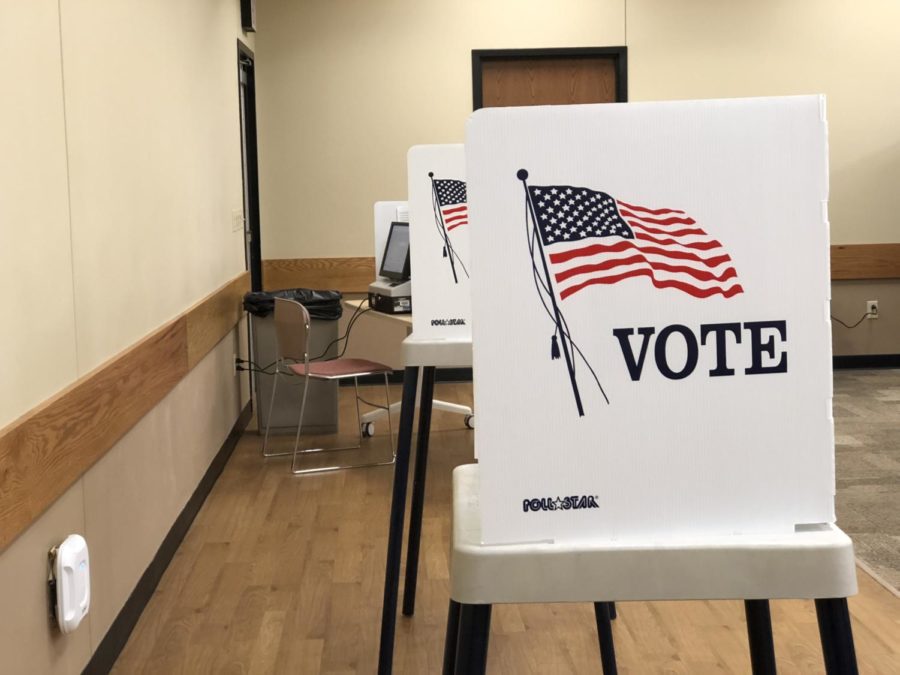Editorial: Go beyond voter registration
Chris Jorgensen/Iowa State Daily
Turnout at voting locations on campus was low- polling officials at the Union Drive Community Center location counted 22 voters as of 5 at night.
September 24, 2018
With National Voter Registration Day today — a holiday celebrating democracy observed on the fourth Tuesday of September — a growing concern that has been raised nationwide is the mass of unregistered voters, especially at the collegiate level.
But the issue has deep roots in citizens as a whole, too. In Iowa alone, there is an estimated 300,000 unregistered and eligible voters.
Inside High Ed states that the percentage of students who were in a study at Tufts University that were registered to vote has increased from 2016 to 2012. However, there was still many registered voters who did not vote. Roughly 48.3 percent of students in the study were registered, and only 68.5 percent of those who were registered actually voted.
While there has been much improvement since 2012, there is still more work that needs to be done.
Many places around Ames are making it possible for unregistered voters to become registered. On Tuesday Sept. 25, there will be many places to get college students registered, such as the Ames Public Library and various locations around Iowa State.
For those of you who live in two different states and are wondering how to vote, you only have to register in one state, either where you go to college or where your permanent residence is. For most people, this is where your parents live.
When you do vote, if you are in a different state than your home state, you can mail in your vote to the voting office in your home state. While you can vote from other states, you cannot be registered to vote in two different states.
To be an engaged and active citizen in your community, especially as midterm elections near, it is important for college students to understand the significance of their vote and realize that it does matter.
Even more so, don’t just take the steps to participate in the electoral process but read up on potential candidates. Look beyond party and consider topics that are most important to you.
Recognize that while party affiliation may help you identify with perspectives and ideologies important to you, civic engagement takes understanding where others may be coming from in their political beliefs.
This Tuesday, participate in National Voter Registration Day. There is a form on page 4 you can fill out. However, make sure that when you show up to the voting booth on Nov. 6 that you are also informed and engaged with the beliefs held those you hope to vote into office.
















